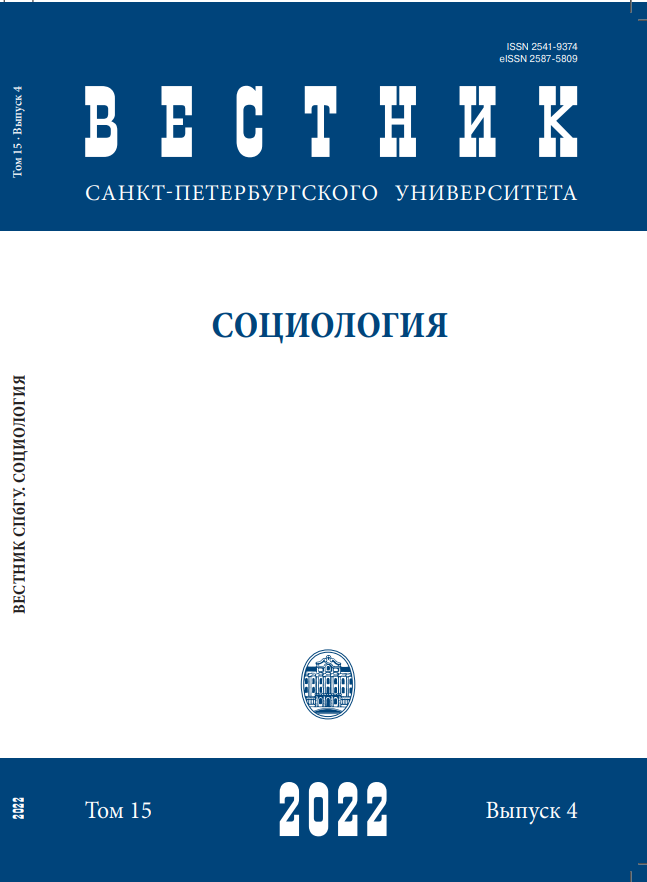The influence of individuals’ emancipative values (mis)match on subjective well-being
DOI:
https://doi.org/10.21638//spbu12.2022.402Abstract
Social sciences pay a great deal of attention to the effects of one’s (dis)similarity with one’s environment. Research of values is one aspect of these studies, where values are most abstracted individual goals which help one evaluate various phenomena as either good or bad. Most often, scholars focus on similarities and conclude that being similar to one’s environment makes one happier and self-confident and results in better relations with other people. There are relatively few studies that focus on the effects of dissimilarities, which leaves an opportunity for new studies. Based on the most recent waves of the World Value Survey and European Value Study (N = 122,224), this paper investigates whether one’s difference in Welzel’s emancipative value index (EVI) from the mean country level affect individual subjective well-being (SWB). Our analysis suggests that this effect depends on (1) the sign of the difference and (2) the country mean EVI. In low-EVI countries people with lower levels of EVI tend to be happier than other people in their country. There is no effect in high-EVI countries. Furthermore, high levels of mean country EVI is a stronger predictor of happiness than are individual differences.
Keywords:
subjective well-being, fit hypothesis, person-environment fit, value congruence, emancipative values, response surface analysis
Downloads
References
Downloads
Published
How to Cite
Issue
Section
License
Articles of "Vestnik of Saint Petersburg University. Sociology" are open access distributed under the terms of the License Agreement with Saint Petersburg State University, which permits to the authors unrestricted distribution and self-archiving free of charge.




